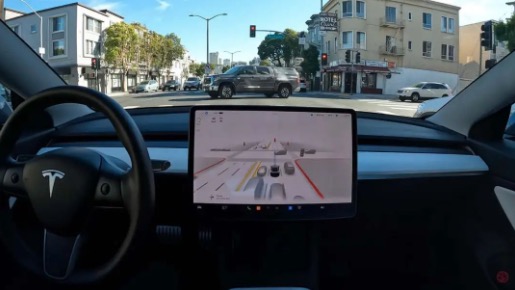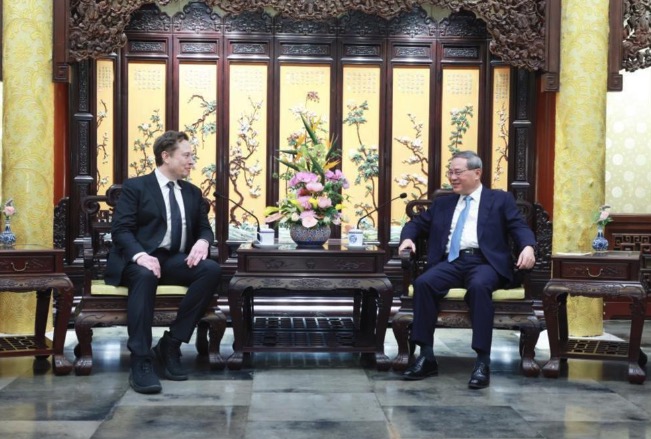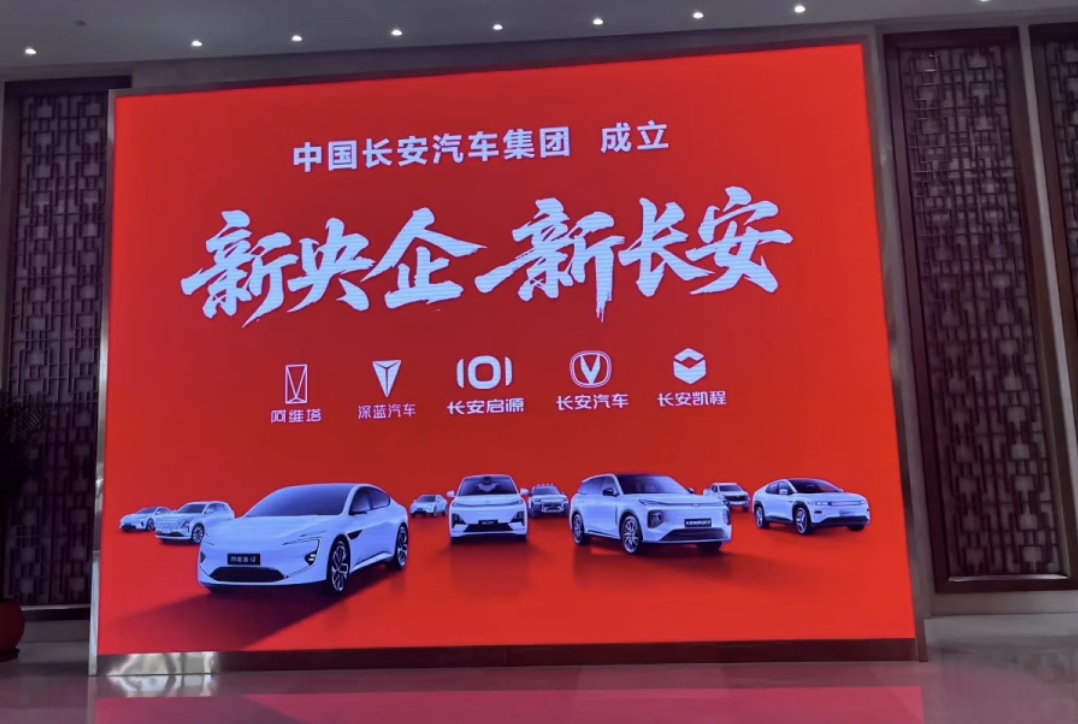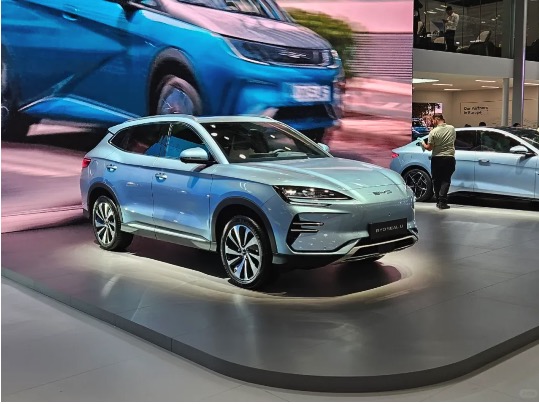April 28th, the China Association of Automobile Manufacturers and the National Computer Network Emergency Response Technical Processing and Coordination Center released the “Notification on the Testing Situation of Four Safety Requirements for Automobile Data Processing (the First Batch)”. The notification shows that a total of 76 models of six companies, including BYD, Ideal Automobile, Lotus Technology, Hozon New Energy, Tesla, and NIO, meet the four compliance requirements for automobile data security, among which Tesla is the only foreign-funded enterprise that meets the compliance requirements.
The models produced by Tesla in its Shanghai factory meet the relevant national standards, including the anonymization processing of outside-the-car facial information, the default of not collecting cabin data, the in-cabin processing of cabin data, and the significant notification of processing personal information for the four compliance requirements, which has triggered intense discussions in the automotive industry. Since long, Tesla’s data security issues have received much attention, such as whether there is the taking pictures when users drive Tesla vehicles and uploading them to the cloud, whether Tesla’s data collection will be uploaded abroad, and whether it involves state secrets, so that Tesla cannot enter and exit normally in some occasions such as airports.
It is known that Tesla established a data center in Shanghai as early as 2021 to achieve localized storage and reduce the risk of leakage, and also introduced third-party institutions to review the company’s information security management system. Tesla stated that Tesla vehicles are compliant and meet the relevant requirements for the safety of automobile data processing in China, which is beneficial to fully lift (such as government agencies, airports, highways, etc.) the ban and stop restrictions on Tesla and other smart cars, and more Tesla and smart car owners can buy and use brands that meet relevant safety requirements more at ease.
After the Tesla data security issue is resolved, it will also take a crucial step for the compliance of the FSD intelligent driving. On April 28th, Tesla CEO Elon Musk was invited to visit China, and the outside world believes that the focus of this trip is to promote the landing of autonomous driving in China.
Tesla’s development in China can be regarded as a successful example of Sino-US economic and trade cooperation. China’s ultra-large market will always be open to foreign-funded enterprises. The Chinese side will always act as promised, and continue to make efforts in expanding market access and strengthening service guarantees, etc., to provide a better business environment and stronger comprehensive support for foreign-funded enterprises, so that enterprises from various countries can invest in China with peace of mind and confidence. Elon Musk said that thanks to the hard work and wisdom of the Chinese team, the Shanghai Super Factory is the best-performing factory of Tesla. Tesla is willing to further deepen cooperation with the Chinese side and achieve more win-win results.
For whether China allows Tesla’s full self-driving technology to operate in the domestic market, Chinese Foreign Ministry spokesperson Lin Jian said, “We treat domestic and foreign-funded enterprises equally and treat them equally. We welcome foreign-funded enterprises to continue to deepen cooperation with China, share the achievements of China’s economic development, and also hope that foreign-funded enterprises will abide by Chinese laws and regulations and fulfill safety commitments.”
The full name of FSD is Full Self-Drive, which means full self-driving. Tesla officially released the FSD Beta (test version) in the third quarter of 2020. FSD is a major highlight of Tesla brand models. It is much more advanced compared to the current market’s automatic auxiliary driving technology. Tesla plans and makes decisions through combining the vehicle with high-precision maps and real-time data to achieve the safe driving and precise operation of the vehicle, and to realize the functional requirements such as automatic parking, automatic auxiliary lane changing, recognizing traffic lights and automatically reacting, and intelligent calling in the parking lot. However, after the introduction of FSD, it has also been heavily questioned, and relevant US departments have also conducted multiple investigations for it, because after Tesla launched FSD, the number of accidents has significantly increased, and whether there is deceptive publicity when promoting FSD. Tesla has therefore carried out multiple large-scale recalls. However, due to regulatory issues, Tesla’s FSD has never been introduced into the domestic market. Although Elon Musk visited China, the introduction time of FSD is still unknown. After all, the urban roads in China are complex and diverse, and the traffic regulations are also different from those in North America. Tesla still faces many challenges in using FSD to open up a new situation.

Tesla needs a new stimulus in China. Elon Musk’s visit to China this time coincides with the Beijing Auto Show. Tesla continues the tradition of the past few years and did not participate in the exhibition, and Elon Musk did not visit the auto show site either. It is understood that the last time Tesla participated in a domestic A-level auto show was the 2021 Shanghai Auto Show. A major rights protection incident occurred on the site, and it has not participated since then. Up to now, the only models made in China of Tesla are still only the Model 3 and Model Y, among which the Model 3 has been on the market for 7 years, and the Model Y has been on the market for 4 years.
Recently, Tesla released its first-quarter financial report. The data shows that in the first quarter of 2024, Tesla’s operating revenue was 21.301 billion U.S. dollars, a year-on-year decrease of 8.69%, a month-on-month decrease of 15.36%, which was lower than market expectations, and it was also the first year-on-year decrease in operating revenue since 2020, and the largest decline since 2012. In terms of profits, Tesla’s performance is even more pessimistic. The net profit in the first quarter is only 1.13 billion U.S. dollars, a year-on-year decrease of 55.07%, which is lower than the market expectation of 1.9 billion U.S. dollars. During the reporting period, Tesla’s gross profit margin was 17.4%, which was 17.6% in the previous quarter, and 19.3% in the same period.
Tesla’s latest financial report is obviously “greatly disappointing”, which mainly boils down to the market concerns that have emerged in the delivery of automobiles. In the first quarter of this year, Tesla delivered 386,000 new cars globally, a year-on-year decrease of 8.5%, which was far lower than the 449,000 predicted by Wall Street. It is understood that this is the first time that Tesla has broken below 400,000 deliveries since the third quarter of 2022, and it is also the first quarter to deliver year-on-year since the second quarter of 2020. And the main reason for the decline at that time was the epidemic.
Although the performance is far below market expectations, Tesla’s secondary market has surged. The reason is that Elon Musk revealed that Tesla’s low-cost models will be launched in early 2025, and may even be brought forward to the later period of 2024. However, the current domestic auto market is extremely competitive, and there are many unknowns even if Tesla launches low-cost models in the Chinese market.



